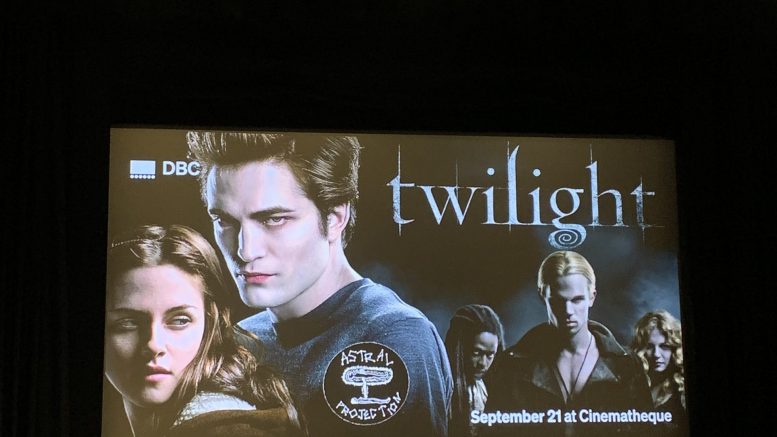Unlike most 13-year-olds of my generation, I did not have a strange parasocial connection and love for Twilight (2008).
My vampiric interests were solely based on Interview with the Vampire: The Vampire Chronicles (1994) and Queen of the Damned (2002), adaptations of Anne Rice novels. It was because of this particular preference for non-sparkling vampires that I felt superior to others my age for what was, to my 13-year-old mind, my completely unique and intellectual taste.
At the time, I refused to engage in the Twilight craze that was consuming my school. After all, the film was undoubtedly bad, and I assumed I wasn’t missing out on anything. Boy, was I wrong.
Fast forward to over a decade later, when during the first mandated lockdown of the COVID-19 pandemic, I impulsively decided to watch the film for the first time.
Let me tell you, I was furious nobody told me the movie was so unbelievably camp.
The extremely exaggerated acting, the late 2000s soundtrack — in my opinion the highlight of the film — and Bella Swan’s occasional strange fashion choices indicative of the stylistic aesthetics of the time help create this hilariously “so bad it’s good” atmosphere.
Having missed out at the time of the film’s release, I immediately bought a ticket when the Dave Barber Cinematheque announced it would screen Twilight as a part of its Astral Projection series.
The monthly screening series, curated by Cinematheque box office manager Nic Kaneski, features films with directors who have astrology signs corresponding to the current zodiac season.
Arriving at the theatre a few minutes before the screening to get my seat and meet up with some friends, I was surprised to see a handful of others with the same idea. Excitement was definitely in the air as fellow Twilight attendees chatted in the Cinematheque lobby.
Once attendees found their seats, Kaneski took to the stage to welcome and introduce us to the screening.
“I think that the first movie really stands out from all the other ones in a lot of ways,” Kaneski said, adding that as a Libra, director Catherine Hardwicke’s “respect for the romance and the seriousness” of the material is reflected in the film. Hardwicke had worked on the film Thirteen (2003) prior to Twilight, and Kaneski said her “curiosity and respect for the subject matter of teenage girls” and her audience “shined through.”
Moved by such a meaningful analysis, I settled in and the film began. However, nothing could prepare me for the next two hours.
Almost immediately after the film’s first line— which sees Bella launch into a brief existential monologue on death — the audience began to holler, and the screening quickly became infused with audience participation.
People laughed at the outrageous second-hand embarrassment from some scenes and cheered when their favourite characters walked into a room for the first time. My friend even started a Rocky Horror Picture Show-like participation activity where people would dramatically say the silliest lines out loud together.
The audience was never completely quiet. Occasionally, things would drop down to a whisper, but before long a memorable scene would cause excited uproar once again.
The best part of it all was that, despite being a new fan of the film myself, I felt completely at home at the event. Twilight was such a cultural phenomenon that, even though I did not see it at release, I already knew some of the jokes that surrounded the film. Still, it felt good to be in on them in a genuine manner here.
Seeing Twilight on the big screen was a completely different experience from seeing it on my laptop during the lockdowns. I picked up on things I had not noticed before, such as Bella’s blue eyeshadow or the terrible wigs worn by almost every actor. It was like truly seeing Twilight for the first time, in all its cringe and beautiful glory.
The audience met the film’s ending with cheers and applause, and I left the Cinematheque feeling like I had healed my inner child, who hadn’t had the chance to be an obsessive Twilight kid.
This film was a perfect choice for the Libra season of Astral Projection. It was one of the most fun screenings I have been to in a while.
The next Astral Projection screening is for Scorpio season, where the Cinematheque will be showing May (2002), a horror film about a young woman whose desire for human connection turns twisted and deadly. Although it’s no Twilight, as a new fan of Astral Projection and a Scorpio myself, I will definitely be returning to the cinema to see it.
The Dave Barber Cinematheque will be screening May on Oct. 25 at 7 p.m. More details can be found on the Cinematheque’s website.


